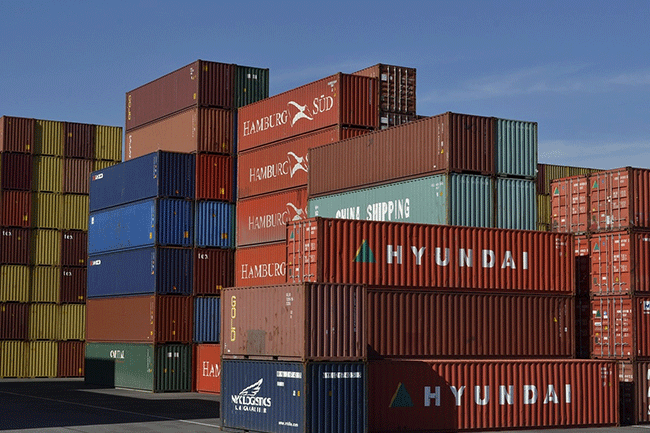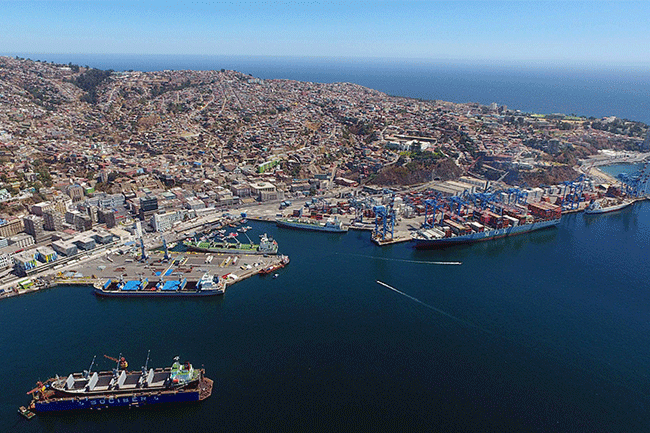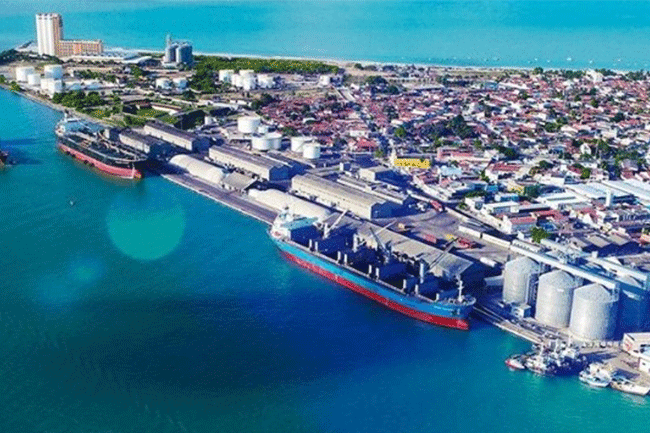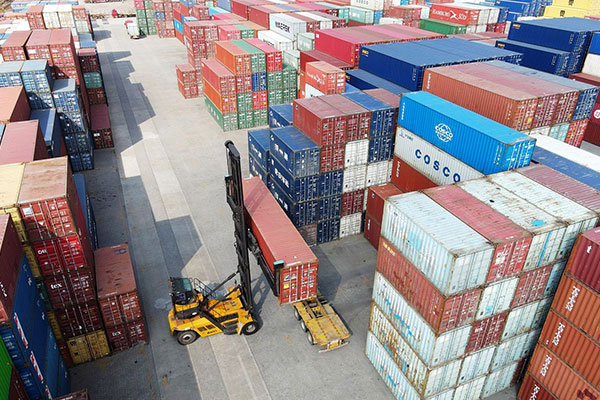- Shanghai Zhongshen International Trading Co., Ltd. – Your reliable partner with 20 years of import/export agency service expertise.

I. International Trade Situation and Policy Opportunities for New Zealand Biscuit Imports
Currently, global food trade shows a trend towards "high quality and diversification." New Zealand, with its strict food safety supervision system (e.g., MPI New Zealand Ministry for Primary Industries certification) and clean production environment, has become one of China's core source countries for imported baked goods. According to China Customs data from 2023, the import value of New Zealand food products under the China-New Zealand Free Trade Agreement (FTA) increased by 18% year-on-year. Among these, biscuit products have seen a surge in demand in China's mid-to-high-end consumer market due to their "natural ingredients + low-sugar formula" characteristics.
On the policy front, after the Regional Comprehensive Economic Partnership (RCEP) came into effect, the agreement tariff rate for New Zealand biscuits exported to China was further reduced (tariffs on some products under HS code 9405.90 have been reduced to 0%). This, combined with China Customs' facilitation measures like "advance declaration for imported food" and "two-step declaration," has created an efficient customs clearance environment for import agency business. However, it should be noted that with the implementation of the "Administrative Provisions on Registration of Overseas Manufacturers of Imported Food" (GACC Decree 248) in 2023, overseas manufacturers must complete registration in China (FSA system registration) before they can export to China, which places higher demands on theImport Agent Servicespreliminary qualification review.
II. Core Import Agency Services: Document Processing and Full-Chain Logistics Management
In the import agency business, document processing and logistics services are the two core factors that determine customs clearance efficiency and cost.
1. Document Processing: Professionalism Determines Clearance Time
The core documents required for importing New Zealand biscuits include:
- Commercial Invoice and Packing List: Must specify product specifications, ingredient list (including allergen information), gross/net weight, etc., and be strictly consistent with the contract terms
- Origin Certificate(FORM N): Under the China-New Zealand FTA, companies can apply for a preferential certificate of origin, which allows them to enjoy the agreement tariff rate after customs approval (note the "direct transport rule" to avoid the certificate becoming invalid due to transshipment)
- Health Certificate: Issued by New Zealand's MPI, it must state that the product complies with China's "National Food Safety Standards" (e.g., GB 7100-2015 Biscuit Hygiene Standard)
- Bill of Lading (B/L):Maritime transportThe B/L must be checked for "shipper," "consignee," and "notify party" information. For a telex release, authorization from the shipping company must be confirmed in advance
- Other supplementary documents: such as ingredient test reports (must include microbial and additive indicators), and packaging declarations (non-wood packaging must have an IPPC mark or a declaration of no wood packaging).
Our documentation team has over 10 years of experience in food imports and can implement a "pre-review - preparation - final check" three-tier verification process. This ensures that documents and goods are "perfectly matched and consistent," avoiding customs inspections and delays caused by document discrepancies (statistics show that 70% of clearance delays are caused by document issues).
2. Logistics Service: Door-to-Door Full-Chain Optimization
The logistics stage requires a customized transportation plan based on product characteristics (e.g., fragility of biscuits, shelf life) and cost requirements:
- Selection of transportation methods: Full Container Load (FCL) is suitable for clients with single import volumes of ≥15 tons (20-foot container) to reduce the risk of cargo damage
- Cold Chain Management: Although biscuits are not perishable, high temperature and humidity can cause packaging to soften. It is recommended to choose ventilated containers and monitor temperature and humidity during transport (e.g., by installing a Reefer Tracker)
- Destination port operation: Complete the "Single Window" declaration 10 days in advance, simultaneously handle the delivery order (D/O) exchange, and establish a rapid response mechanism with the customs inspection department to ensure clearance within 48 hours of arrival (the regular time is 72-96 hours)
- Domestic distribution: In cooperation with the top 5 national logistics companies, we provide "port-warehouse-terminal" multi-warehouse distribution solutions, supporting different delivery needs for B2B (distributors) and B2C (e-commerce platforms), achieving "last mile" efficiency control.
III. Breakdown of Full-Process Agency Service: Key Nodes from Consultation to Delivery
Import agency services need to cover the entire cycle of "needs confirmation - execution - feedback," with the specific steps as follows:
1. Client Consultation & Demand Confirmation
During the initial communication, the following must be clarified: Product HS Code (e.g., 9405.90.0090), import volume (tons/container), port of destination (Shanghai/Shenzhen/Qingdao), clearance mode (general trade/Cross-border E-commerce), and sales channels (supermarket/e-commerce/custom). For example, cross-border e-commerce imports require an additional "three documents comparison" (order, payment, and logistics data), which necessitates advance system integration planning.
2. Contract Review and Risk Control
Key areas to review are trade terms (e.g., CIF Auckland vs FOB Shanghai), payment methods (30% advance + 70% on B/L copy vs sight?L/C?), and the quality dispute period (usually 30 days after arrival). Our company can provide a "contract legal opinion" to avoid pitfalls like "quality non-conformance" and "delayed delivery" clauses.
3. Payment and Foreign Exchange Management
We support major payment methods like T/T (Telegraphic Transfer), L/C (Letter of Credit), and D/P (Documents against Payment). For large transactions (≥500,000 USD), we can assist in arranging "trade financing" (e.g., import documentary credit) with banks to alleviate clients' financial pressure. Foreign exchange payments strictly adhere to the State Administration of Foreign Exchange's "Foreign Exchange Monitoring System for Trade in Goods" reporting requirements, ensuring compliant payment.
4. Production Supervision and Pre-Shipment Inspection
While not directly involved in production, we can, at the client's request, coordinate with third-party agencies (such as SGS, Bureau Veritas) for Pre-Shipment Inspection (PSI). Key checks include: raw material sources (whether they contain GMO ingredients), packaging compliance (pre-review of Chinese labels), and quantity/weight accuracy (supervised weighing), with an inspection report issued as a supplementary document for customs clearance.
5. Customs Compliance and Tax Calculation
The import process involves paying customs duties (agreement rates 0%-5%) and value-added tax (13%). Some products may also be subject to consumption tax (e.g., biscuits containing alcohol). Through our "HS Code Pre-classification Service" (filed with customs for pre-ruling), we ensure 100% accuracy in tax code declaration. At the same time, using our "Intelligent Certificate of Origin Review System," we automatically match the most favorable tariff preferences, saving clients an average of 3%-5% on import costs.
6. Quality Assurance and Issue Resolution
Upon arrival, we coordinate with customs to complete "random sampling for inspection" (testing for microbes, additives, heavy metals). If non-compliance occurs (e.g., excessive total bacterial count), we can assist with "return shipment" or "destruction" procedures and file a claim against the exporter based on the contract (must be submitted within 15 days of the inspection certificate issuance).
7. Summary, Feedback, and Long-Term Cooperation
We provide a "Full-Process Import Report" that includes: logistics timeliness analysis (time taken at each node from port of origin to destination), detailed cost breakdown (sea freight/port charges/duties, etc.), and quality data (inspection pass rate), helping clients optimize future import plans.
IV. Compliance Notice: Import Certification Requirements and Agency Service Boundaries
It should be noted that our company does not directly provide product certification services, but we can advise clients on the relevant requirements:
- Registration of overseas production enterprises: New Zealand biscuit manufacturers must register through the General Administration of Customs' "Imported Food Overseas Manufacturer Registration Management System" (FSA). Companies can submit the application themselves or entrust a third-party agency (such as a certification company) (process takes about 3-6 months)
- Domestic Circulation Certification: If the product makes special claims (e.g., "organic," "gluten-free"), additional certifications like organic certification (e.g., NZBio) or gluten-free test reports (e.g., SGS certification) are required. It is recommended that clients start the certification process 6 months in advance
- Label Compliance: Pre-packaged biscuits must have a Chinese label affixed (including ingredients, shelf life, storage conditions, etc.), which must comply with GB 7718-2011 "General Standard for the Labeling of Prepackaged Foods." Our company can provide a label pre-review service (non-certification).
V. Extended Services: VTB for Russian BusinessConvert foreign exchange into RMBAdvantages and Cross-Border Payment Optimization
For clients with needs for re-export to Russia or cross-border trade, our company can facilitate settlement through VTB Bank (Sberbank of the Russian Federation):
- Settlement efficiency: VTB has established direct clearing channels with major Chinese banks (such as Bank of China, ICBC), shortening cross-border remittance arrival times to 1-2 business days (regularly 3-5 business days)
- Exchange rate risk hedging: Through VTB's "forward foreign exchange settlement" tool, clients can lock in exchange rates to mitigate the risk of RUB/CNY fluctuations (e.g., by signing a 3-month forward contract to lock in the current rate)
- Compliance guarantee: VTB is connected to the SWIFT system (while some Russian banks are excluded), ensuring that cross-border payments comply with international sanctions requirements (e.g., screening against OFAC, EU sanctions lists).
Conclusion:
Importing New Zealand biscuits as an agent requires a balance of policy compliance, document professionalism, and logistics efficiency.Zhong Shen International Trade Co., Ltd.With 20 years of industry experience, we focus on three core capabilities: "zero-error documentation, full logistics control, and risk-free compliance," helping clients seize the market initiative in the high-quality New Zealand food import sector.
? 2025. All Rights Reserved.










